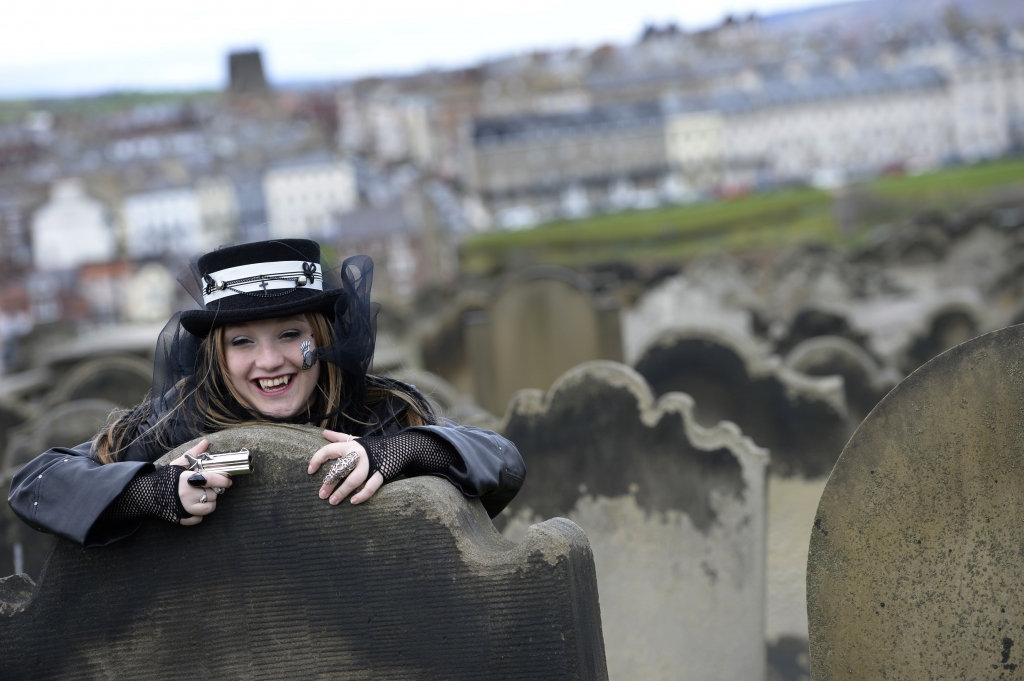-
Tips for becoming a good boxer - November 6, 2020
-
7 expert tips for making your hens night a memorable one - November 6, 2020
-
5 reasons to host your Christmas party on a cruise boat - November 6, 2020
-
What to do when you’re charged with a crime - November 6, 2020
-
Should you get one or multiple dogs? Here’s all you need to know - November 3, 2020
-
A Guide: How to Build Your Very Own Magic Mirror - February 14, 2019
-
Our Top Inspirational Baseball Stars - November 24, 2018
-
Five Tech Tools That Will Help You Turn Your Blog into a Business - November 24, 2018
-
How to Indulge on Vacation without Expanding Your Waist - November 9, 2018
-
5 Strategies for Businesses to Appeal to Today’s Increasingly Mobile-Crazed Customers - November 9, 2018
Teenage Goths At Higher Risk of Depression, Study Says
Teenagers who thought of themselves as “goths” – a youth subculture revolving around dark themes and fashions – were three times as likely to be depressed and five times more likely to contemplate self-harm compared with those teens who didn’t identify that way.
Advertisement
Latest study conducted by researchers from the United Kingdom found that goth teens are more likely to be clinically depressed than those who are not. In addition, they were also five times more likely than non-Goth teens to engage in self-harming behaviors.
Overall, 5,357 participants had data available for goth self-identification and of these, 3,694 had data for depression and self-harm outcomes at age 18 years.
Young people who adopt the “goth” subculture might be at increased risk of depression and self-harm, according to UK researchers.
Those who identified as “sporty” were said to be the least likely to become depressed.
The Children’s Society report, which looked at 15 diverse countries, ranked England 14th for life satisfaction of its young people, ahead of South Korea.
Dr Gillian Moore-Groarke, a Cork-based consultant psychologist who has worked with adults and teenagers for 25 years, said most Goth teenagers she had encountered in her clinic “just don’t want to fit the expected norm and have found the Goth image as a way of expressing their frustrations with the expectations of their peers”. “If adolescents identifying as goths seek less professional help and have different attitudes, this finding will have important implications for the management of risk of depression and self-harm in this vulnerable group”.
The team behind the study have stated that it is possible that “peer contagion” within the goth subculture was responsible for the link to depression, but added that the group could also be more attractive to the depressed than other subcultures.
Previously, researchers had linked contemporary goth youth subculture with deliberate self harm, but until now whether this association was more attributable to the traits of young people, their families, or their circumstances was unclear.
‘These young people may be attracted to like-minded goths who face similar stressors’. Young people will often join subcultures and across all of them there will be those that feel so desperate that they sadly turn to self-harm.
Advertisement
“Further monitoring and assessment of self-harm risk is recommended for these young people,”said Dr O’Connor of the Suicidal Behaviour Research Laboratory in University of Glasgow”. Those who were “somewhat” identified with the goth subculture were likely to score in the clinical range for depression at 18 years old, only by 1.6 times.





























